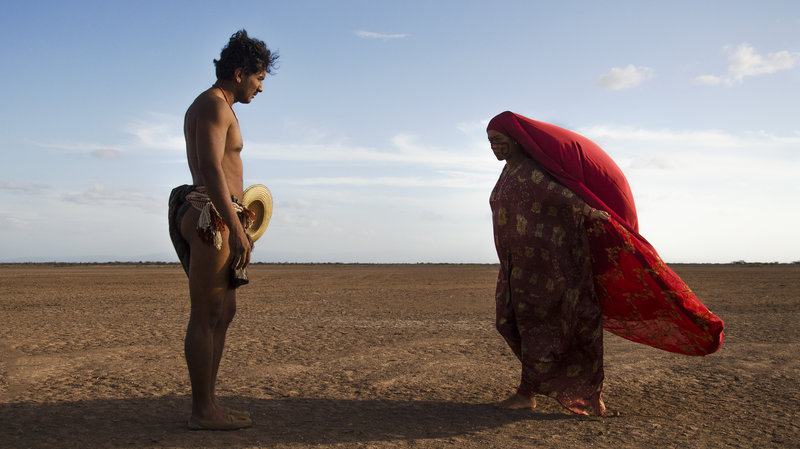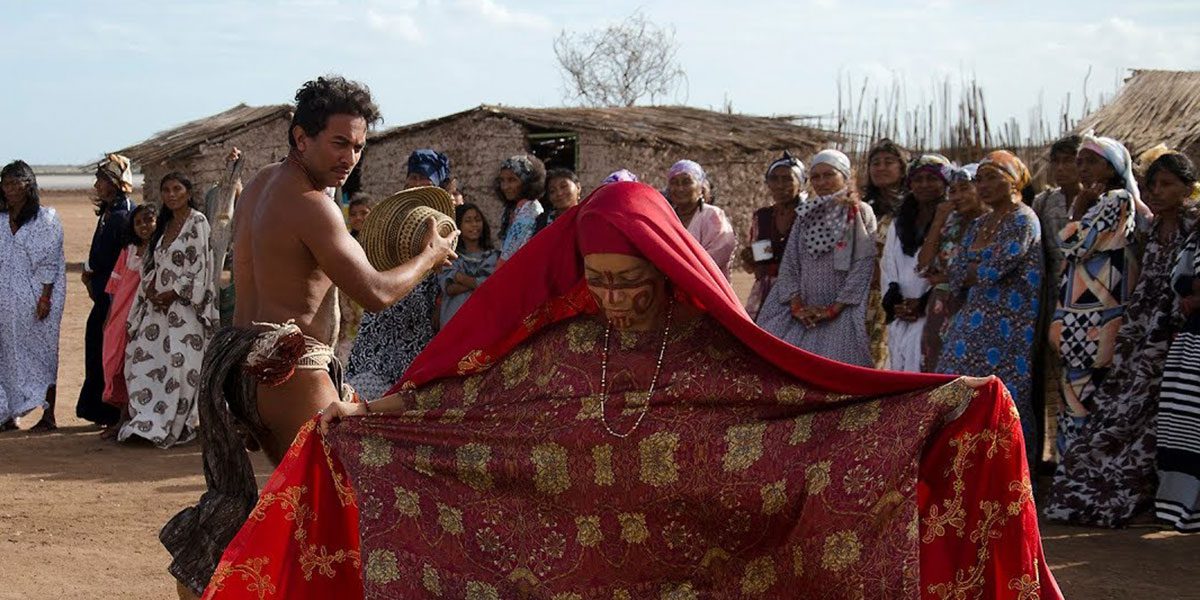Birds of Passage
15¦ DVDFilms about drug wars aren’t that unusual, they often go a bit like this: young whippersnapper comes up the ranks, wants to make an impression, throw their considerable ego around, “hey, who are you, to throw your ego around?” – “bang, bang, you’re dead!”, - ”No, bangbang You’re dead!!”. The end.
This film deviates from that particular path. Based on true events, it instead concentrates its focus on the small Columbian communities who grew marijuana, and the fallout from doing so.

Erm, I'm a kite, fly me?
1968, Columbia, and Young Rapayet (José Acosta) has fallen in love with a beautiful woman, Zaida (Natalia Reyes). Unfortunately, he can’t just go up to her and ask her out; the long-standing tradition of the clan she’s a part of won’t allow it. She can be his however, if he pays her dowry, which includes various livestock and jewellery.
It all adds up to a small fortune, one which Rapayet doesn’t have. Undeterred, he decides to throw caution to the wind, and do some wheeling and dealing. When he and a friend come across some American tourists seeking weed, they jump on the opportunity to make some quick cash; so much so that Rapayet returns to the village, dowry in tow, and picks up his prize.
He quickly realises that there’s profit to made here, and that he, his clan, and surrounding clans, have the chance to make serious, life-changing money. It’s certainly that, but as the money pours in, the clans struggle to maintain their traditions and values causing disruption within their tight communities.

I say, these pop-up tents are getting really advanced...
This Columbian film, directed by Cristina Gallegro and Ciro Guerra, spans two decades when the international market for drugs exploded. Instead of an all-guns-abazin’ approach, the directors present their story with Shakespearian undertones. It’s about love, and what we’re willing to do for it; it’s about ambition, and how destructive it can be; and it’s about families and how they can be torn apart.
The clans involved are very traditional, wrapped up as they are in their dreams and spirits, concerned about breaking long-held superstitions. Although they benefit initially from selling marijuana, it soon becomes evident that they’ve opened Pandora’s Box, with no way of closing it.
There is of course, gun play involved, but the film far from makes these scenes set plays; instead, it’s more concerned with the fallout on their communities, and how best to deal with them.
Despite its lack of shoot-outs – or perhaps because of their exclusion – the film is strangely compelling, with a rhythm and energy all of its own. It is rich with culture, and the threat of its extinction, as clans struggle to cope with the pressures that come with the high demand for a plant that meant very little to them up to this point.
It’s this refreshing approach to the standard drug film that makes Bird of Passage a fascinating watch; its unexpected rural setting makes for a sparse background to some truly curious characters and their beliefs, making this both intriguing and utterly absorbing.
